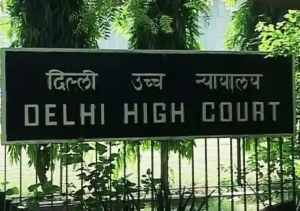 Facts of the Case: The Petitioner, a practicing advocate, challenged a search and seizure operation conducted by the GST Department at his office in connection with alleged GST evasion by one of his clients. During the search, the Department seized a CPU containing confidential client correspondence, the law firm’s Partnership Deed, and other sensitive documents. The CPU was seized in the Petitioner’s absence, and GST officials obtained and accessed its contents by using the passwords.
Facts of the Case: The Petitioner, a practicing advocate, challenged a search and seizure operation conducted by the GST Department at his office in connection with alleged GST evasion by one of his clients. During the search, the Department seized a CPU containing confidential client correspondence, the law firm’s Partnership Deed, and other sensitive documents. The CPU was seized in the Petitioner’s absence, and GST officials obtained and accessed its contents by using the passwords.
The Petitioner contended that as an advocate, he was only representing his client in professional capacity and that seizure of his CPU amounted to harassment and violation of attorney-client privilege.
Earlier, the Court had restrained the Department from accessing the CPU and observed that no advocate could be harassed unless material evidence showed his personal involvement in the alleged illegality.
Subsequently, the GST Department submitted in sealed cover that the Petitioner was not merely representing the client but was actively involved in managing the business and affairs of the said client.
Issue: Whether the GST Department could lawfully seize and access the computer/CPU of an advocate, containing confidential client information, during a tax investigation into one of his clients, and if so, under what safeguards?
Held that: The Delhi High Court strongly cautioned the GST Department that the CPU or computer of an advocate cannot be opened without his presence and consent, except in exceptional circumstances and subject to Court’s further orders.
The Court recognized that such access could lead to serious breach of confidentiality and attorney-client privilege.
However, given the sealed cover material indicating possible active involvement of the Petitioner in the business of his client, the Court permitted conditional analysis of the seized CPU.
Without commenting on the petitioner’s role, the Court permitted limited analysis of the CPU, but with strict safeguards:
- The CPU shall be examined in the presence of the petitioner, his counsel, a forensic expert, two senior High Court IT officials, and a forensic expert nominated by the GST Department.
- The team will determine the last access date, files accessed by officials during the search, and whether any data was deleted, copied, or removed.
- Only files relating to the client under investigation shall be copied and supplied to the Department.
- A cloned copy of the hard drive shall be given to the petitioner, and the CPU shall remain sealed in the Department’s custody.
- No coercive measures shall be taken against the petitioner pending further orders.
Therefore, the Court emphasized that advocates cannot be subjected to harassment or intrusive searches unless there is prima facie material showing their personal involvement in illegality.
Case Name: Puneet Batra Versus Union Of India & Ors. vide W. P. (C) 11021/2025 & CM APPLs. 45387/2025 & 56648/2025 dated 09.09.2025.
To read the complete judgment 2025 Taxo.online 2295


